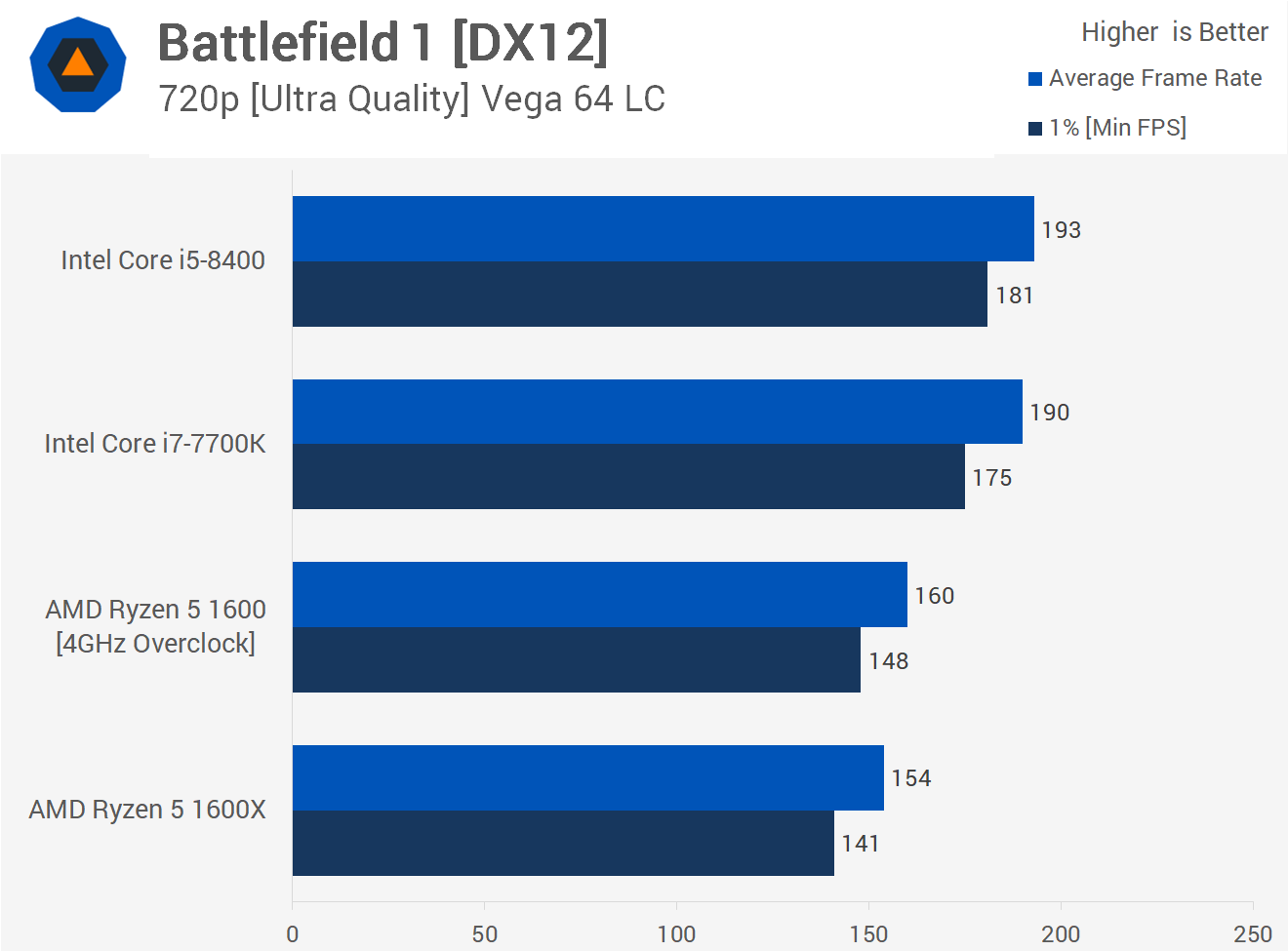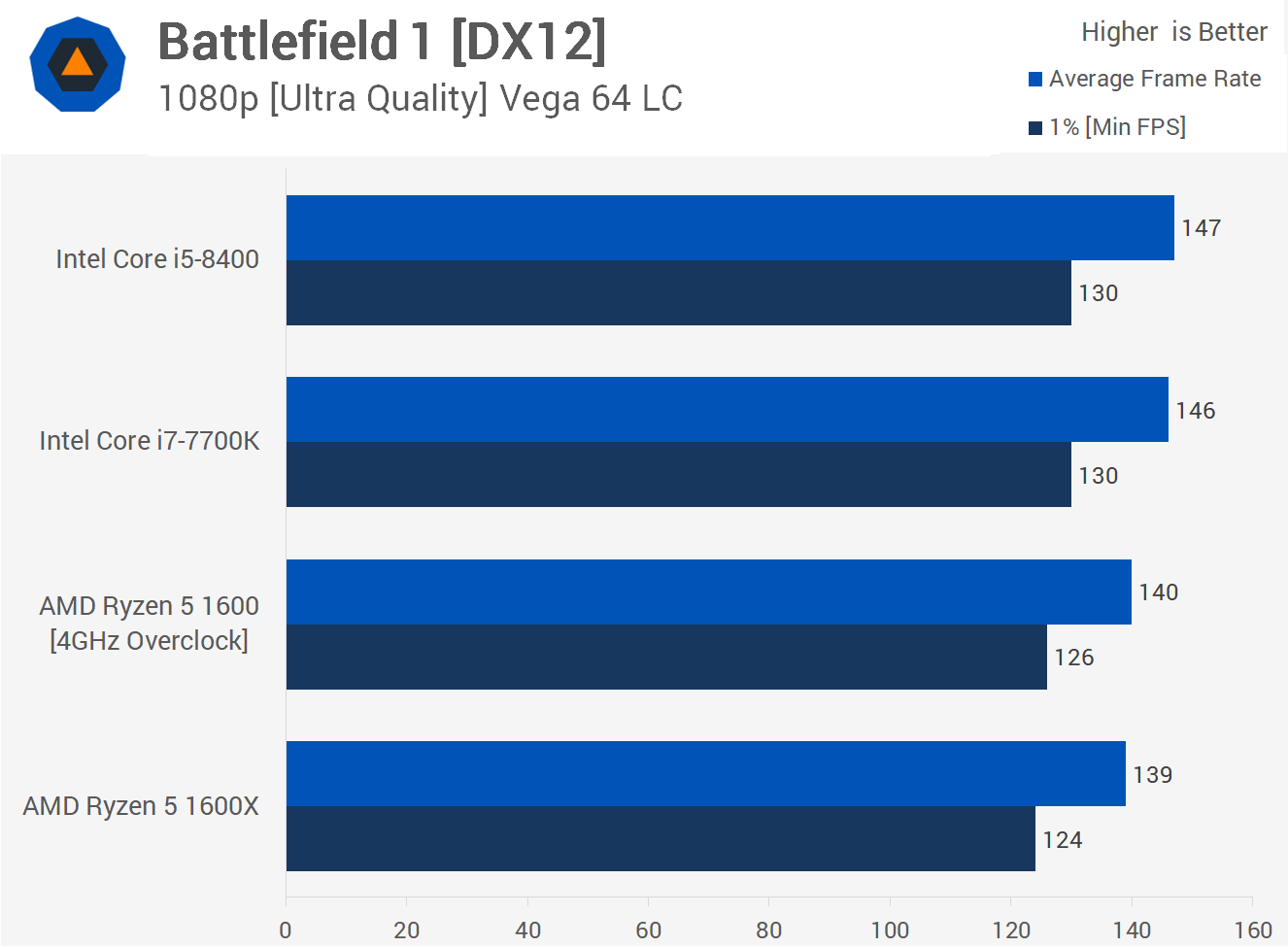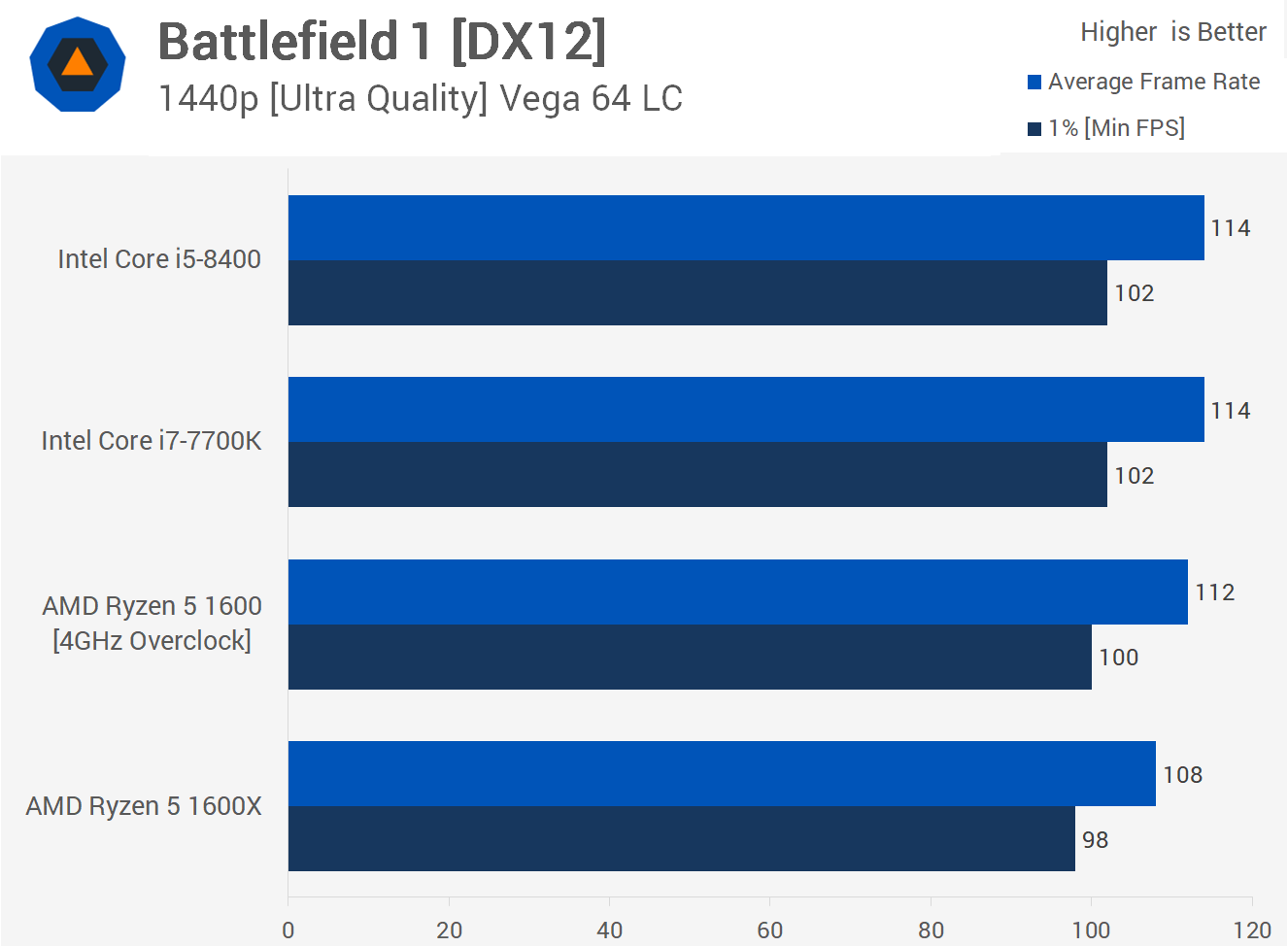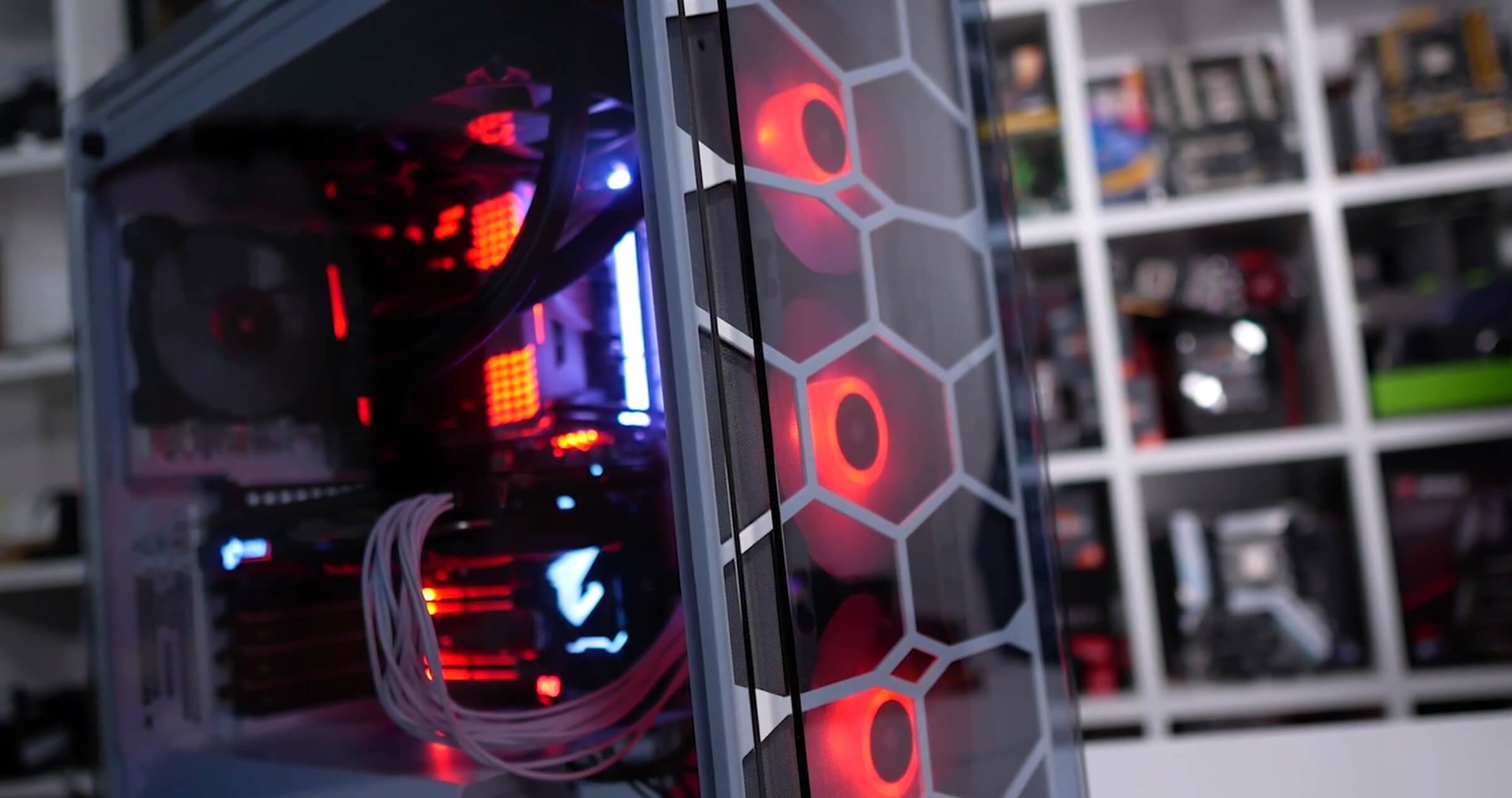Our most recent CPU roundup pitted Intel's 7th and 8th-gen Core i5 and Core i7s against AMD's Ryzen 5 and 7 by playing and benchmarking nine representative PC games at multiple resolutions. In total eight new CPUs were tested at their base clock speeds.
We then planned to revisit the comparison with overclocking results. However making good sense of the numbers and the processors that brought the best value, we decided to make a more straightforward shootout – this was also the most demanded by readers – putting an overclocked Ryzen 5 1600 against the Core i5-8400 instead.
Carried over from the previous article are the results for stock Ryzen 5 1600X and Core i7-7700K which will be compared to the Core i5-8400 and Ryzen 5 1600, the last of which will be overclocked to 4GHz. So again, the focus of today's benchmarks will be the overclocked Ryzen 5 1600 at 4GHz versus the Core i5-8400 with the intent of seeing whether the Ryzen CPU can deliver comparable gaming performance when overclocked, and how it stacks up in terms of value.
Coffee Lake System Specs
|
Kaby Lake System Specs
|
Ryzen 7 System Specs
|
|
Benchmark Time

Battlefield 1 brought disappointing numbers for Ryzen right off the bat. That said, I wasn't expecting the overclocked 1600 to be significantly faster than the 1600X which already operates quite close to 4GHz for the most part. Here at 720p, overclocking the cheaper R5 1600 boosted frame rates by up to 5% and this meant even overclocked Ryzen was much slower than the 8th generation Core i5.
In fact, here the Core i5-8400 is 40fps faster for the minimum frame rate and that's almost a 30% increase. You're essentially getting 7700K like performance (slightly better) for a much lower price, when looking at the MSRP anyway.

As dire as the low resolution testing looks as the GPU bottleneck creeps in at 1080p on ultra quality, the Ryzen 5 1600 mounts a swift comeback and is now within a 5% margin. There are two sides to these results. Some will say they are realistic as they show gamers how much difference they will really see under conditions they intend to play. The other side being that it's hiding how much faster the Intel CPUs are and with faster GPUs that margin will open up in the future. I'm simply going to note both arguments and leave it up to you to decide which results will influence your buying decision.

Finally at 1440p we are even more GPU limited and here the CPU's impact is reduced further, needless to say all CPUs offered a smooth experience in Battlefield 1.
